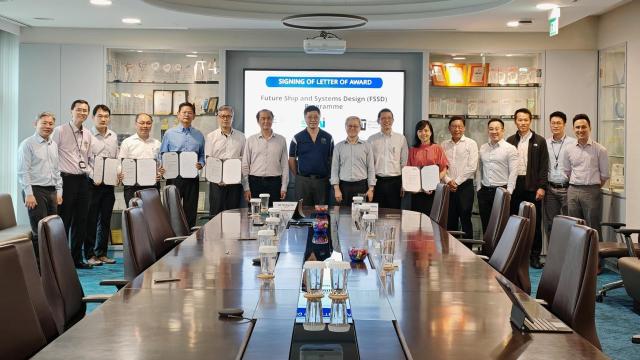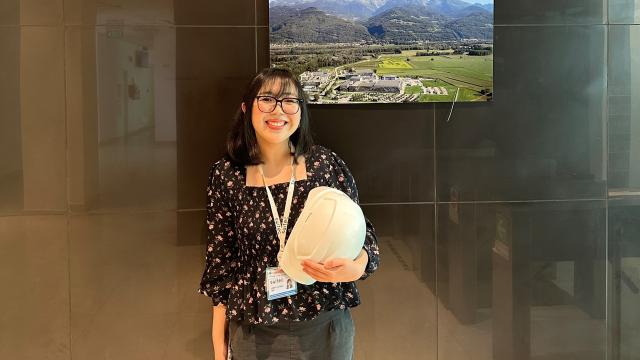Graduates from the Singapore Institute of Technology (SIT) continue to be well received by the industry, as they enjoy high employment rates and competitive entry-level salaries. These findings[1] are based on the Joint Graduate Employment Survey (GES)[2] 2015, jointly conducted by SIT and four other Autonomous Universities (AUs) – the Nanyang Technological University (NTU), the National University of Singapore (NUS), the Singapore Management University (SMU) and the Singapore University of Technology and Design (SUTD).
This is the second year that SIT is part of this annual survey, which includes graduates from SIT’s 10 Overseas University (OU) partners in 28 degree programmes as well as the first batch of graduates from SIT-Trinity College Dublin (TCD) Bachelor of Science in Diagnostic Radiography. Around 79% of SIT’s cohort of 1,363 fresh graduates participated in the survey[3] which took place from 1 March to 10 May 2016.
Key findings of GES 2015
The GES 2015 findings revealed that SIT graduates in the labour force enjoyed a high overall employment[4] rate of 90.5%. Around 83% of SIT graduates in the labour force secured full-time permanent (FTP) employment[5] six months after completing their final examinations.
SIT graduates in full-time permanent employment were also earning higher starting . The median gross monthly salary increased to $3,055 in 2015, up from $3,000 in 2014. In particular, the graduates from the Nursing and Allied Health programmes were earning more compared to the 2014 graduates. The median gross monthly salary for SIT’s Nursing graduates was $3,615, while SIT’s Allied Health graduates earned median gross monthly salaries between $3,125 and $3,488.

SIT’s focus on industry collaborations and its strong symbiotic relationship with the industry have enhanced the employability of graduates and resulted in a seamless transition from classroom to the workplace. As part of its applied learning pedagogy, SIT has created the Integrated Work Study Programme (IWSP) to provide students with opportunities to integrate the knowledge they have gained in the classroom with real-world practices. Students from the SIT-conferred degree programmes will be immersed in a real work environment for eight to 12 months, longer than traditional internships, which enables true integration into the workforce.
Associate Professor Ivan Lee, Vice-President (Industry & Community), SIT commented on the GES 2015 findings, “We are encouraged by the survey results. It shows that we are on the right track to meet Singapore’s industry and manpower needs. To this end, we will continue to offer specialised, applied degree programmes which are industry-relevant, as well as produce graduates who are imbued with the SIT-DNA and are well prepared to contribute to the ‘future-proofing’ of Singapore.”
[1] Details on SIT’s course-level results are available at MOE website.
[2] The GES is conducted jointly by the five Autonomous Universities (NTU, NUS, SIT, SUTD and SMU) every year to collect information on the employment status of graduates six months after the completion of their final examinations. Due to different course completion dates, SIT conducts its survey in March annually, while NUS, NTU and SMU conduct their surveys in November, and SUTD conducts its survey in February.
[3] The graduates in 2015 are from SIT’s Overseas University partners. The pioneer batch of students from the SIT-conferred degree programmes will graduate in 2016.
[4] The overall employment rate includes all types of full-time, part-time and temporary employment, as well as self-employment. It refers to the number of employed graduates as a proportion of graduates in the labour force (i.e. those who were working or not working but actively looking and available for work), approximately 6 months after completion of final examinations.
[5] Full-time permanent employment refers to employment of at least 35 hours a week and where the employment is not temporary. It includes those on contracts of one year or more.
![[FA] SIT One SITizen Alumni Initiative_Web banner_1244px x 688px.jpg](/sites/default/files/2024-12/%5BFA%5D%20%20SIT%20One%20SITizen%20Alumni%20Initiative_Web%20banner_1244px%20x%20688px.jpg)


